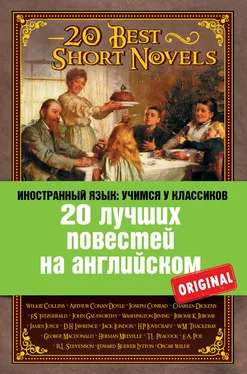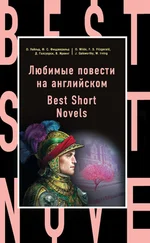He said he had known young men go off to a boat race, or a cricket match, with pounds in their pocket, and come home, early in the afternoon, stone broke; having lost all their money at this demoralising game.
He said he should take Mr. Coombes’s half-crown, because it would teach Mr. Coombes a very useful lesson, and probably be the means of saving Mr. Coombes’s money in the future; and he should give the two-and-sixpence to the blanket fund.
‘Don’t you worry about that,’ retorted old Mr. Coombes. ‘Don’t you take the half-crown OUT of the blanket fund: that’s all.’
And he put his money on the middle card, and turned it up.
Sure enough, it really was the queen!
We were all very much surprised, especially the curate.
He said that it did sometimes happen that way, though – that a man did sometimes lay on the right card, by accident.
Our curate said it was, however, the most unfortunate thing a man could do for himself, if he only knew it, because, when a man tried and won, it gave him a taste for the so-called sport, and it lured him on into risking again and again; until he had to retire from the contest, a broken and ruined man.
Then he did the trick again. Mr. Coombes said it was the card next the coal-scuttle this time, and wanted to put five shillings on it.
We laughed at him, and tried to persuade him against it. He would listen to no advice, however, but insisted on plunging.
Our curate said very well then: he had warned him, and that was all that he could do. If he (Mr. Coombes) was determined to make a fool of himself, he (Mr. Coombes) must do so.
Our curate said he should take the five shillings and that would put things right again with the blanket fund.
So Mr. Coombes put two half-crowns on the card next the coal-scuttle and turned it up.
Sure enough, it was the queen again!
After that, Uncle John had a florin on, and HE won.
And then we all played at it; and we all won. All except the curate, that is. He had a very bad quarter of an hour. I never knew a man have such hard luck at cards. He lost every time.
We had some more punch after that; and Uncle made such a funny mistake in brewing it: he left out the whisky. Oh, we did laugh at him, and we made him put in double quantity afterwards, as a forfeit.
Oh, we did have such fun that evening!
And then, somehow or other, we must have got on to ghosts; because the next recollection I have is that we were telling ghost stories to each other.
Teddy Biffles’ story
Teddy Biffles told the first story; I will let him repeat it here in his own words.
(Do not ask me how it is that I recollect his own exact words – whether I took them down in shorthand at the time, or whether he had the story written out, and handed me the MS [363]afterwards for publication in this book, because I should not tell you if you did. It is a trade secret.)
Biffles called his story —
Johnson and Emily or The faithful ghost (Teddy Biffles’ Story)
I was little more than a lad when I first met with Johnson. I was home for the Christmas holidays, and, it being Christmas Eve, I had been allowed to sit up very late. On opening the door of my little bedroom, to go in, I found myself face to face with Johnson, who was coming out. It passed through me, and uttering a long low wail of misery, disappeared out of the staircase window.
I was startled for the moment – I was only a schoolboy at the time, and had never seen a ghost before, – and felt a little nervous about going to bed. But, on reflection, I remembered that it was only sinful people that spirits could do any harm to, and so tucked myself up, and went to sleep.
In the morning I told the Pater what I had seen.
‘Oh yes, that was old Johnson,’ he answered. ‘Don’t you be frightened of that; he lives here.’ And then he told me the poor thing’s history.
It seemed that Johnson, when it was alive, had loved, in early life, the daughter of a former lessee [364]of our house, a very beautiful girl, whose Christian name had been Emily. Father did not know her other name.
Johnson was too poor to marry the girl, so he kissed her good-bye, told her he would soon be back, and went off to Australia to make his fortune.
But Australia was not then what it became later on. Travellers through the bush were few and far between in those early days; and, even when one was caught, the portable property found upon the body was often of hardly sufficiently negotiable value to pay the simple funeral expenses rendered necessary. So that it took Johnson nearly twenty years to make his fortune.
The self-imposed task was accomplished at last, however, and then, having successfully eluded the police, and got clear out of the Colony, he returned to England, full of hope and joy, to claim his bride.
He reached the house to find it silent and deserted. All that the neighbours could tell him was that, soon after his own departure, the family had, on one foggy night, unostentatiously disappeared, and that nobody had ever seen or heard anything of them since, although the landlord and most of the local tradesmen had made searching inquiries.
Poor Johnson, frenzied with grief, sought his lost love all over the world. But he never found her, and, after years of fruitless effort, he returned to end his lonely life in the very house where, in the happy bygone days, he and his beloved Emily had passed so many blissful hours.
He had lived there quite alone, wandering about the empty rooms, weeping and calling to his Emily to come back to him; and when the poor old fellow died, his ghost still kept the business on.
It was there, the Pater said, when he took the house, and the agent had knocked ten pounds a year off the rent in consequence.
After that, I was continually meeting Johnson about the place at all times of the night, and so, indeed, were we all. We used to walk round it and stand aside to let it pass, at first; but, when we grew at home with it, and there seemed no necessity for so much ceremony, we used to walk straight through it. You could not say it was ever much in the way.
It was a gentle, harmless, old ghost, too, and we all felt very sorry for it, and pitied it. The women folk, indeed, made quite a pet of it, for a while. Its faithfulness touched them so.
But as time went on, it grew to be a bit a bore. You see it was full of sadness. There was nothing cheerful or genial about it. You felt sorry for it, but it irritated you. It would sit on the stairs and cry for hours at a stretch; and, whenever we woke up in the night, one was sure to hear it pottering about the passages and in and out of the different rooms, moaning and sighing, so that we could not get to sleep again very easily. And when we had a party on, it would come and sit outside the drawing-room door, and sob all the time. It did not do anybody any harm exactly, but it cast a gloom over the whole affair.
‘Oh, I’m getting sick of this old fool,’ said the Pater, one evening (the Dad can be very blunt, when he is put out, as you know), after Johnson had been more of a nuisance than usual, and had spoiled a good game of whist, by sitting up the chimney and groaning, till nobody knew what were trumps or what suit had been led, even. ‘We shall have to get rid of him, somehow or other. I wish I knew how to do it.’
‘Well,’ said the Mater, ‘depend upon it, you’ll never see the last of him until he’s found Emily’s grave. That’s what he is after. You find Emily’s grave, and put him on to that, and he’ll stop there. That’s the only thing to do. You mark my words.’
The idea seemed reasonable, but the difficulty in the way was that we none of us knew where Emily’s grave was any more than the ghost of Johnson himself did. The Governor suggested palming off some other Emily’s grave upon the poor thing, but, as luck would have it, there did not seem to have been an Emily of any sort buried anywhere for miles round. I never came across a neighbourhood so utterly destitute of dead Emilies.
Читать дальше
Конец ознакомительного отрывка
Купить книгу












